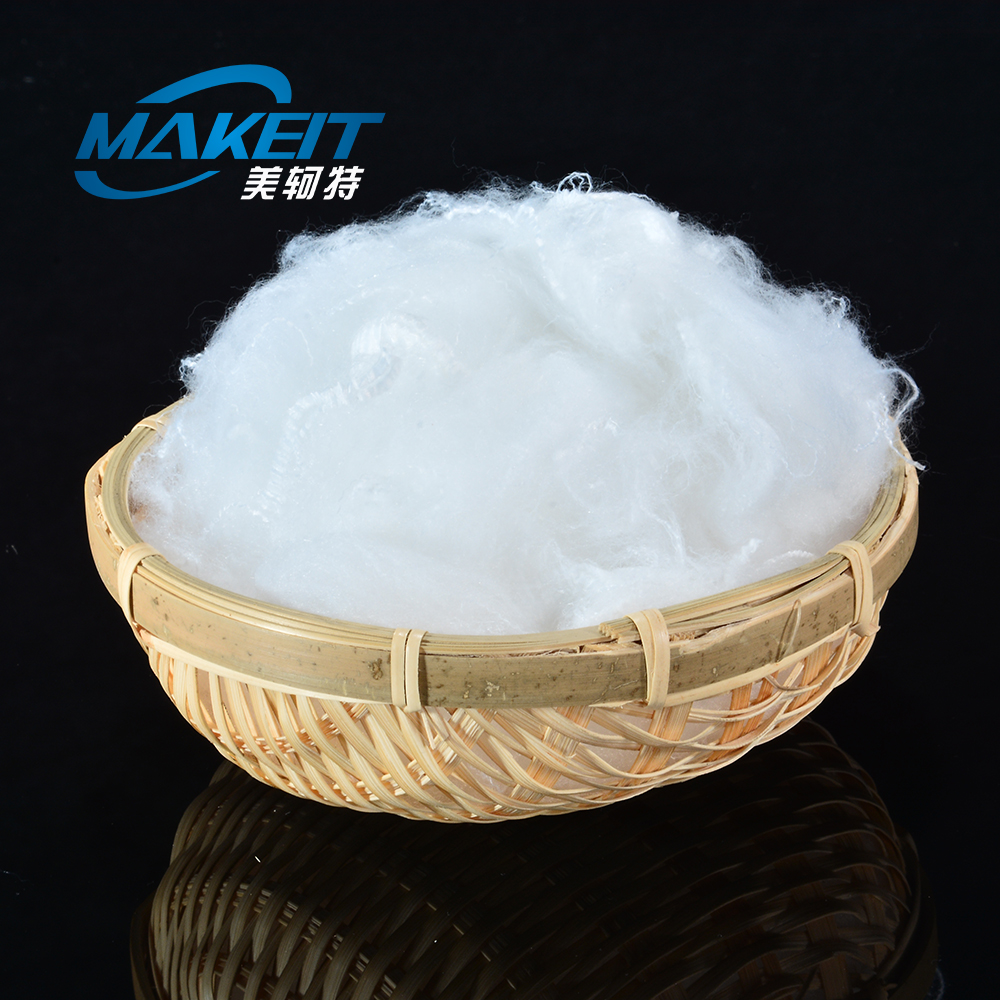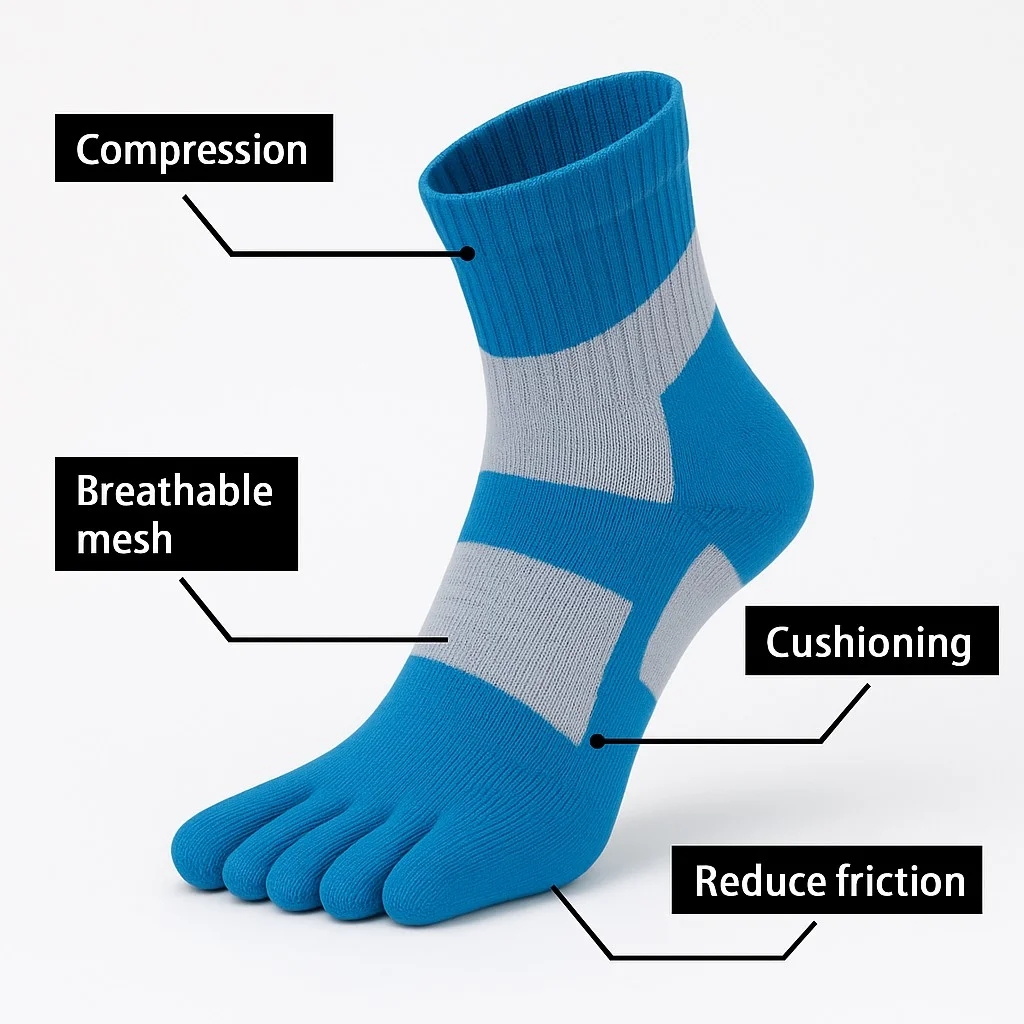The Ultimate Guide to Eco-Friendly Apparel Made from Soybean Protein Fiber

As the world shifts toward sustainability, eco-friendly apparel made from soybean protein fiber is gaining attention across global fashion and textile industries. Combining environmental benefits, skin-friendly features, and versatile applications, soybean protein fiber is not just a green alternative — it’s the future of biodegradable textiles. Suzhou Makeit Technology Co., Ltd, a pioneer in sustainable fiber innovation, is leading this transformation through advanced production and certified quality.

1. What is Soybean Protein Fiber?
Soybean protein fiber, often referred to as “vegetable cashmere,” is a new-generation bio-based textile made from soybean meal — a byproduct of soybean oil extraction. Through advanced wet-spinning technology, the soybean protein is transformed into a soft, smooth, and breathable fiber suitable for apparel and home textiles.
Unlike petroleum-based fibers, soybean protein fiber is:
-
Biodegradable
-
Non-toxic
-
Renewable
It bridges the gap between natural fibers like cotton and luxury fibers like silk, offering a unique combination of comfort and sustainability.
2. Why Choose Soybean Protein Fiber for Eco-Friendly Apparel?
Consumers are increasingly seeking textiles that are gentle on the skin and the planet. Here’s why soybean protein fiber stands out:
-
Moisture absorption & breathability: It keeps the skin dry and fresh.
-
Soft texture: Comparable to silk and cashmere, ideal for innerwear, T-shirts, and baby clothing.
-
Amino acid content: Good for sensitive skin and known to promote skin health.
-
Completely biodegradable: Leaves no toxic residues after disposal.
These characteristics make it a perfect fit for eco-conscious brands aiming to reduce environmental impact without sacrificing performance or style.
3. Applications in the Apparel Industry
Thanks to its excellent performance, soybean protein fiber is used in:
-
Casualwear and sportswear: Offers comfort and stretch.
-
Loungewear and underwear: Skin-friendly and breathable.
-
Eco-fashion collections: Appeals to green-conscious consumers.
-
Children’s and baby clothing: Safe, soft, and hypoallergenic.
Designers are increasingly integrating this innovative fiber into their collections to align with sustainable fashion goals.
4. How Suzhou Makeit Leads the Soybean Fiber Market
Suzhou Makeit Technology Co., Ltd, backed by its subsidiary Changshu Meijie Chemical Fiber Co., Ltd, is a recognized manufacturer of high-quality staple fibers, including soybean protein fiber. Operating a 20,000m² facility with an annual capacity of 50,000 tons, Makeit offers:
-
State-of-the-art production lines
-
In-house R&D and mold capabilities
-
A strong commitment to eco-innovation
-
International certifications including OEKO-TEX STANDARD 100, GRS, ITS, and SGS
Makeit’s soybean protein fiber products are trusted by clients across Southeast Asia, Europe, and North America, delivering consistent quality and sustainable solutions.
5. Certifications and Environmental Compliance
Eco-friendliness isn’t just a marketing buzzword — it requires third-party validation. Makeit ensures its soybean protein fiber meets the highest environmental and safety standards:
-
OEKO-TEX STANDARD 100: Ensures no harmful substances.
-
GRS (Global Recycled Standard): Validates the use of renewable and sustainable materials.
-
ITS, SGS testing: Guarantees product reliability and compliance with international norms.
These certifications give apparel brands confidence to promote their collections as truly green and ethically sourced.
6. Future Trends and Opportunities
The demand for bio-based, biodegradable textiles is rapidly increasing, driven by government policies, consumer preferences, and global sustainability targets. In this environment, soybean protein fiber is expected to play a crucial role in:
-
Replacing synthetic fibers in mainstream fashion
-
Supporting circular economy models in textiles
-
Reducing microplastic pollution
-
Enhancing fabric innovation through blends with PLA, cotton, and viscose
For brands looking to future-proof their product lines, early adoption of soybean-based materials offers both a competitive edge and a strong sustainability story.
7. Getting Started with Soybean Fiber Apparel
Whether you're an emerging fashion label or a large apparel manufacturer, partnering with a reliable supplier is key. Suzhou Makeit not only delivers premium-quality soybean protein fiber but also supports clients with:
-
Technical guidance for fiber blending and fabric finishing
-
Custom specifications for different applications
-
Flexible MOQ and fast delivery
-
Global logistics and multilingual support
Working with a certified, experienced provider ensures that your eco-fashion journey is both efficient and effective.
Conclusion: Why Soybean Protein Fiber is the Future of Eco-Friendly Apparel
As more industries move toward environmental responsibility, eco-friendly apparel made from soybean protein fiber stands at the intersection of sustainability, performance, and innovation. With Suzhou Makeit’s proven manufacturing capabilities and global reach, your brand can tap into this powerful trend and deliver products that consumers will love — and the planet will thank you for.
www.makeitfiber.com
SuZhou Makeit Technology Co.,Ltd
